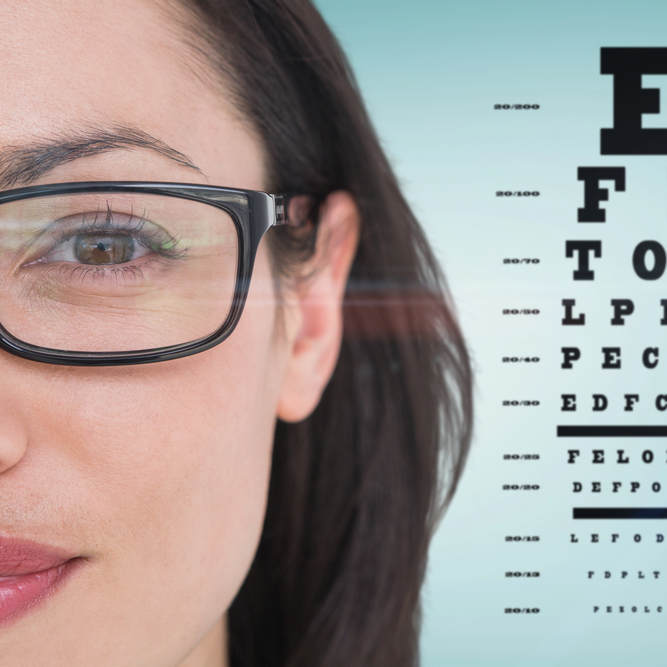Comprehensive Eye Tests
Your vision is crucial to your daily life and well-being. At Concord Eyecare, we are committed to delivering comprehensive eye examinations for adults. Our thorough assessments and tailored vision care solutions ensure you maintain optimal eye health.
Importance of Regular Eye Examinations
- Early detection of eye conditions can prevent vision loss.
- Monitoring changes in vision ensures timely updates to prescriptions.
- Comprehensive exams assess overall eye health, not just vision clarity.
- Preventive care can identify systemic health issues, like diabetes and hypertension.
- Regular checkups maintain optimal visual performance for daily tasks.
Recommended Checkup Frequency
- Adults aged 18-60: every 2 years for general eye health.
- Adults over 60: annually, due to higher risk of age-related eye diseases.
- High-risk groups (diabetics, those with a family history of eye disease): annually or as advised by an optometrist.
- Contact lens wearers: annually, to ensure the lenses fit correctly and the eyes remain healthy.
- Individuals with existing eye conditions: as recommended by their eye care professional.


Ensuring Accurate Lens Prescriptions
- Precise measurement of visual acuity to determine exact prescription needs.
- Assessment of refractive error conditions such as myopia, hyperopia, and astigmatism.
- Personalized fitting and adjustment for optimal lens performance.
- Consultation about lifestyle factors to recommend the best lens options.
Differences Between Contact Lens and Regular Prescriptions
- Contact lens prescriptions include additional parameters like base curve and diameter.
- Regular eyeglass prescriptions focus solely on correcting refractive errors.
- Contact lens prescriptions require a fitting process to ensure proper fit and comfort.
- Contact lens prescriptions are mandatory for online purchases to ensure safety and accuracy.
Types of Tests Typically Performed
- Visual acuity measurement to determine clarity of vision.
- Binocular vision testing to assess eye-teaming and focusing skills.
- Digital retinal imaging to capture detailed images of the retina.
- Intraocular pressure measurement to check for glaucoma.
- Visual field testing to evaluate peripheral vision.
- Dilated fundus examination to inspect the retina and optic nerve.
Commonly Detected Eye Health Conditions
- Cataracts, which cloud the eye’s natural lens.
- Glaucoma, usually characterized by increased intraocular pressure.
- Macular degeneration, affecting the central part of the retina.
- Diabetic retinopathy, a complication of diabetes impacting the eyes.
- Dry eye syndrome, caused by insufficient or abnormal tear production.
- Retinal detachment, a serious condition requiring immediate attention.

Safeguard Your Vision
Step 1
Book an appointment at Concord Eyecare.
Step 2
You visit our clinic.
Step 3
We do an eye test, discuss the results and create a vision care plan.
At Concord Eyecare, our comprehensive eye tests for adults can detect and address potential problems early, ensuring you enjoy clear and healthy vision. Whether for work, leisure, or daily activities, sharp eyesight is essential. Take control of your vision health today—book your eye examination and see the world clearly!
Frequently Asked Questions
Yes, comprehensive eye exams are generally covered by Medicare in Australia for eligible individuals. Medicare provides coverage for standard eye tests conducted by optometrists, which typically includes an examination every two years. For individuals with certain health conditions or higher risk factors for eye disease, more frequent examinations may also be covered. It’s advisable to check with Medicare for specific coverage details and eligibility criteria.
A comprehensive eye exam involves a series of tests to evaluate your vision and check for eye diseases. It includes assessing your visual acuity, eye alignment, and overall eye health.
Yes, eye exams can detect signs of systemic health problems such as diabetes, high blood pressure, and high cholesterol, which can manifest in the eyes.
Regular eye exams can detect early signs of eye diseases that may not have noticeable symptoms. Early detection can prevent vision loss and maintain overall eye health.
The exam typically takes 45-60 minutes. It includes a detailed history review, various vision tests, and an evaluation of your eye health. You may experience some light sensitivity if dilation is performed.
Bring your current eyeglasses or contact lenses, a list of medications, and any previous eye health records. Be prepared to discuss your vision history and any symptoms you may be experiencing.
Dilation can cause temporary light sensitivity and blurred vision. It’s advisable to bring sunglasses and arrange for someone to drive you home, especially if you are uncomfortable driving with dilated pupils.
The exam includes retinal imaging and a detailed inspection of the blood vessels in your retina, allowing early detection of diabetic retinopathy and timely management to prevent vision loss.
For children, eye exams ensure proper vision development and identify issues early, aiding in academic and social activities. For adults, exams monitor age-related changes and detect conditions like glaucoma and macular degeneration early.
